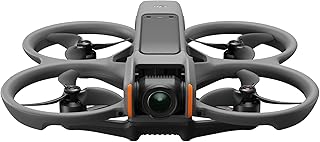The Future of DJI Drones: A Look Ahead
DJI, the undisputed leader in consumer and professional drones, faces a future filled with both promise and challenges. Here's a breakdown of the key trends and factors shaping the landscape:
Strengths and Opportunities:
* Technological Innovation: DJI consistently pushes boundaries with cutting-edge technology. Expect advancements in:
* AI and Automation: Autonomous flight, object recognition, obstacle avoidance, and smart mission planning will become even more sophisticated.
* Camera Systems: Higher resolution, better low-light performance, advanced sensors like LiDAR and thermal imaging will open new application areas.
* Connectivity: Improved range and reliability, integration with 5G and other technologies will enable larger-scale operations.
* Growing Market Demand: The drone market is expected to expand rapidly, fueled by applications in:
* Commercial Applications: Inspection, surveying, mapping, logistics, delivery, agriculture, security, and more.
* Consumer & Entertainment: Aerial photography, videography, racing, recreation, and even drone delivery services.
* Government & Public Safety: Search and rescue, surveillance, emergency response, disaster relief, and infrastructure monitoring.
* Ecosystem Expansion: DJI's robust ecosystem of software, hardware, and services will continue to attract developers and partners, fostering a thriving community.
* Brand Recognition and Trust: DJI's brand enjoys immense recognition and trust, allowing it to leverage its strong position in the market.
Challenges and Uncertainties:
* Competition: Emerging players, particularly from China, are challenging DJI's dominance with competitive pricing and features.
* Regulation and Safety Concerns: Stringent regulations on drone use, particularly in sensitive areas like airspace and privacy, could limit the adoption and potential of drones.
* Data Privacy and Security: As drones collect vast amounts of data, concerns about data privacy, security breaches, and potential misuse will need to be addressed.
* Sustainability and Environmental Impact: The environmental impact of drone batteries, manufacturing processes, and potential accidents will require careful consideration.
Key Trends Shaping the Future:
* Increased Integration: Drones will seamlessly integrate with other technologies, like autonomous vehicles, 5G networks, and the Internet of Things (IoT).
* Vertical Specialization: DJI will likely focus on specialized solutions for specific industries, offering tailored drones and software packages.
* Emphasis on Safety and Reliability: DJI will prioritize safety features and autonomous systems to address regulatory concerns and build trust.
* Focus on Sustainability: DJI may explore eco-friendly materials, sustainable battery technologies, and responsible manufacturing practices.
Looking Ahead:
DJI's future success will depend on its ability to navigate these challenges while leveraging its strengths. Its commitment to innovation, its vast ecosystem, and its established brand will undoubtedly play a significant role. As the drone market matures and evolves, DJI will need to continue adapting and innovating to maintain its leadership position and shape the future of drone technology.


